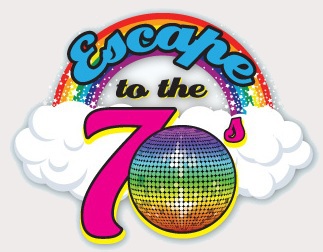The Conversation – 1974

Directors
Francis Ford Coppola
Writer
Francis Ford Coppola
Producers
Francis Ford Coppola producer
Fred Roos co-producer
Mona Skager associate producer
Cast
Gene Hackman – Harry Caul
John Cazale – Stan
Allen Garfield – William P. ‘Bernie’ Moran
Frederic Forrest – Mark
Cindy Williams – Ann
Michael Higgins – Paul
Elizabeth MacRae – Meredith
Teri Garr – Amy Fredericks
Harrison Ford – Martin Stett
Mark Wheeler – Receptionist
Robert Shields – The Mime
Phoebe Alexander – Lurleen
Gian-Carlo Coppola – Boy in Church (uncredited)
Robert Duvall – The Director (uncredited)
Richard Hackman – Confessional Priest/Security Guard (uncredited)
George Meyer – Salesman (uncredited)
Al Nalbandian – Salesman at Surveilance Convention (uncredited)
Review by Jack Gattanella
The Conversation (1974)
Coppola’s ‘other’ nineteen-seventies classic; one of Hackman’s most complex performances,Francis Form Coppola’s The Conversation was his only film from the seventies written and directed by him (and made through his Zoetrope studios), and it is no less than a major credit to his status as a creative, successfully experimental filmmaker of the new-wave of American directors of the 70’s. The Conversation is a first-person story of a surveillance man named Harry Caul, played by Gene Hackman, who’s well respected by his fellow snoop-peers, but isn’t always that good at it. After getting audio on a conversation between a man and woman talking about a murder, or one that could happen, and trying to decipher some muddled words in it, he leaves his door open for the tapes to be stolen, and this sets him into a paranoid state fearing a deja-vu will occur for him (his work caused some deaths years before).
What’s so fascinating and telling about The Conversation is that its basic storyline and development is that of a thriller, yet the way Coppola uses Hackman’s Harry brings to the story themes of guilt, privacy, fear, loneliness, and so forth that go to reel the viewer into the psychology of this character. The ones Harry is listening in on are important to the story, but not so much as Harry’s placement on the outskirts of what else is going on in the story. A more conventional film would’ve gone with The Director character (in a cameo by Robert Duvall), or even with the people Harry Caul listens in on. Instead we get a viewpoint strictly from the sideline, which is often harrowing, especially from his perspective.
Two aspects to The Conversation really struck me on my first viewing, outside of Bill Butler’s keenly observatory camera-work and the acting from the main and supporting players: the sound in most scenes is rather extraordinary for the times. Whether we’re hearing the conversation in its repetitious form(s), listening in on a silence about to break, or even in just a seemingly normal scene, when sounds, either diegetic or non-diegetic, come into play it’s like Coppola, and his Academy Award nominated (should’ve won) sound men Walter Murch and Art Rochester, are stretching the boundaries for it, and were arguably expanding its usage before movie-goers ears. The other thing that struck me was how Coppola gets the viewer deeper into Harry’s mood with surrealistic images that are all the more frightening since they seem totally real to Harry. The prime example of this would be the hotel room scene – because Harry is a sort of anti-hero, and we can still identify with him slightly on a moral level, the dream-like moments become potent, visionary.
And then there’s Hackman as Harry Caul- he plays him to the best of the great actor’s ability, revealing levels of sorrow, bitterness, humility, and regret all with total conviction that another actor might’ve not grasped. By the end of the film, the viewer’s been brought along on this journey via Harry, and though Coppola was the mastermind behind how it was crafted, it was Hackman to me who brought the whole experience to a sense of realism to a thriller that has illusions to spare. Whether or not the conversation hurt others or brought upon shame on The Director isn’t the point, and that’s how Coppola must’ve wanted it – he was inspired by Antonioni’s Blowup, which used photographs as a man’s obsession instead of sound – the point is Harry’s journey through this assignment, and how it begins to whittle him down to a nub…
One of the best films of 1974, The Conversation also won the prestigious Palme D’Or at Cannes that year. A+






Have Your Say.....
If you have any information or thoughts on this page, please help us by popping them in the comment box below.